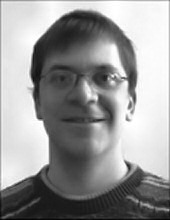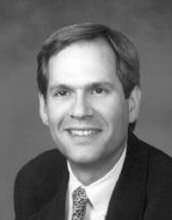NIST-Ontolog-NCOR Mini-Series: Ontology Measurement and Evaluation (Session-4) - Thu 22-Feb-2007 (TQT)
- Session Chair: Dr. Steven Ray (NIST) (TQU)
- Invited Speakers: Professor Michael Gruninger (U. of Toronoto) & Mr. Conrad Bock (NIST) (TQV)
- Topic: "Evaluating Reasoning Systems: Ontology Languages" (TQW)
- Archive: slides & audio recording of the session (mp3) (TQX)
Conference Call Details (TQY)
- Date: Thursday, February 22, 2007 (TQZ)
- Start Time: 10:30am PST / 1:30pm EST / 7:30pm CET / 18:30 GMT/UTC (TR0)
- ref: World Clock (TR1)
- Expected Call Duration: 1.5~2.0 hours (TR2)
- Dial-in Number: (TR3)
- Shared-screen support (VNC session), if applicable, will be started 5 minutes before the call at: http://vnc2.cim3.net:5800/ (TRG)
- view-only password: "ontolog" (TRH)
- if you plan to be logging into this shared-screen option (which the speaker may be navigating), and you are not familiar with the process, please try to call in 5 minutes before the start of the session so that we can work out the connection logistics. Help on this will generally not be available once the presentation starts. (TRI)
- people behind corporate firewalls may have difficulty accessing this. If that is the case, please download the slides below and runing them locally. The speaker will prompt you to advance the slides during the talk. (TRJ)
- Please review our Virtual Session Tips and Ground Rules - see: VirtualSpeakerSessionTips (TRK)
- RSVP to peter.yim@cim3.com appreciated. (TRM)
- This session, like all other Ontolog events, is open to the public. Information relating to this session is shared on this wiki page: http://ontolog.cim3.net/cgi-bin/wiki.pl?ConferenceCall_2007_02_22 (TRN)
- Please note that this session will be recorded, and the audio archive is expected to be made available as open content to our community membership and the public at-large under our prevailing open IPR policy. (TRO)
Attendees (TRP)
- Attended: (TRQ)
- SteveRay (TRS)
- MichaelGruninger (TRT)
- ConradBock (TRU)
- PeterYim (TRV)
- TatianaMalyuta (UHY)
- Othel Rolle (Pfizer) (UIF)
- DougHolmes (TRW)
- AlanBond (UIG)
- KenBaclawski (UIH)
- Line Pouchard (Oakridge National Lab) (UII)
- Scott Keller (Northrop Grumman) (UIJ)
- BobSmith (UI4)
- MatthewWest (UHZ)
- PaulKoch (UIA)
- BillMcCarthy (UIB)
- KathyLesh (U7H)
- MichelBiezunski (UI7)
- OlivierBodenreider (UIK)
- Line Pouchard (Oak Ridge National Lab) (UIT)
- Frederick Banks (Boeing) (TUU)
- Todd Schneider (Raytheon) (UAZ)
- BrandNiemann (UIL)
- ChrisWelty (UIM)
- ChrisMenzel (UIO)
- Cecil Lynch (UC Davis) (UIP)
- Richard Adler (Decision Path) (TVF)
- ViktoriaPammer (TTO)
- TillMossakowski (UIQ)
- FrankOlken (UIR)
- Scott Moody (Boeing) (UIS)
- Also expecting (and who may have joined us after the roll call): (TRR)
- KateNguyen (TUT)
- Patrick Plunkett (HUD) (TVG)
- DeniseBedford (UI0)
- Craig Cunningham (OntoReason) (UI1)
- SusanTurnbull (UI5)
- KateGoodier (UI6)
- JackTeller (UI9)
- ... to register for participation, please add your name above (plus your affiliation, if you aren't already a member of the community), or e-mail <peter.yim@cim3.com> so that we can reserve enough resources to support everyone's participation. ... (TRX)
- Regrets: (TRY)
- PeterBrown (on a train to Scotland! Will follow up with mp3 archive) (U4W)
- RexBrooks (will download) (UI2)
- DuaneNickull (UI3)
- CharlesTurnitsa (UIC)
- EdDodds (download) (UIU)
Background (TRZ)
This is the 3rd event of a mini-series of talks and discussions that revolve around the topic: "Ontology Measurement and Evaluation" during which this community will explore the landscape, issues and solutions relating to the measurement, evaluation, quality and testing of ontologies. (TS0)
This is a Joint NIST-Ontolog-NCOR initiative. A planning meeting for this mini-series took place on 22-Aug-2006, during which the scope and plans for the program was discussed among members of the community. Dr. Steven Ray, who is the Chief of NIST's Manufacturing Systems Integration Division (MSID), a long time member of the Ontolog community, as well as the convener of NCOR's Ontology Evaluation Committee, was invited to champion the program. This series is expected to last about 6 months during which invited speaker and technical discussion events will be featured (at the rate of about one event per month). (TS1)
See also: OntologyMeasurementEvaluation (the 'project' homepage for this mini-series) (TS2)
Agenda & Proceedings: "Ontology Measurement and Evaluation" - Mini-series Session-4 (TS3)
Professor Michael Gruninger and Mr. Conrad Cock presenting their talk on: "Evaluating Reasoning Systems: Ontology Languages" (TS4)
- Session Format: this is a virtual session conducted over an augmented conference call (TS5)
- 1. Opening - SteveRay (TS6)
- 2. we'll go around with a self-introduction of participants (10~15 minutes) - will skip this segment if we have moe than 20 participants (in which case, it will be best if members try to update their namesake pages on this wiki prior to the call so that everyone can get to know who's who more easily.) (TS7)
- 3. Introduction of the invited speaker by Dr. Steven Ray, our program lead of this mini-series (TS8)
- 4. Invited Speaker(s) Presentation - MichaelGruninger & ConradBock (~60 minutes) (TS9)
- 5. Q & A and Open discussion by all participants (~30 minutes) (TSA)
- 6. Summary / Conclusion / Follow-up (SteveRay - 5 minutes) (TSB)
Topic: "Evaluating Reasoning Systems: Ontology Languages" (TSC)
by Professor Michael Gruninger & Mr. Conrad Bock (TTN)
 . . . . . . . .
. . . . . . . .  (TSD)
(TSD)
[Professor Michael Gruninger] [Mr. Conrad Bock] (TSE)
- Abstract (by MichaelGruninger & ConradBock): (TSF)
We present a taxonomy of representation languages, ordered by expressiveness. We will use the following characteristics to specify a profile for each language in the taxonomy: monotonicity, soundness and completeness, complexity, model-theoretic properties. We will use the following three properties of a reasoning system to characterize its representation language: theory language is used to specify the knowledge bases that are used by the reasoning system, Query language is used to specify the queries that are solved by the reasoning system, and ontology that specifies any set of background axioms that are implicitly used by the reasoning system. (TSG)
- About the Speakers: (TSH)
Michael Gruninger is a Professor at the Department of Mechanical & Industrial Engineering of University of Toronto (Ontario, Canada). His research focus is in the design and formal characterization of ontologies and their application to problems in manufacturing and enterprise engineering. Previously, he has held research positions at the Institute for Systems Research at the University of Maryland College Park and at the National Institute for Standards and Technology (NIST) in the USA. Michael received his Ph.D. and M.Sc. in Computer Science at the University of Toronto and his B.Sc. in Computer Science at the University of Alberta. He has been the project leader for the Process Specification Language project at NIST. He is also the project leader for ISO 18629 (Process Specification Language) within the International Standards Organization (ISO), and he was the project editor for project ISO 24707 (Common Logic). (TSI)
Conrad Bock is a computer scientist at the US National Institute of Standards and Technology specializing the Process Specification Language (PSL), the Unified Modeling Language (UML) and modeling language semantics. Among other responsibilities, he has been developing process ontologies based on the PSL. He has been Workgroup Lead for UML 2 Activities and Actions, and one of the developers of the UML repository model at the Object Management Group. He has also been NIST's representative on the HL7 Clinical Decision Support Technical Committee. Conrad received his MS in computer science from Stanford University. (TSJ)
- Our invited speakers' prepared slides can be accessed by pointing your web browsers to: (TSK)
- http://ontolog.cim3.net/file/work/OntologyMeasurementEvaluation/2007-02-22_EvaluatingReasoningSystems/OntologyLanguages--MichaelGruninger-ConradBock_20070222.ppt (TSL)
- links to additional relevant resources: (TSM)
- see: OntologyMeasurementEvaluation (the 'project' homepage for this mini-series) (TTM)
- Full Report: "Evaluating Reasoning Systems," Bock, Gruninger, Libes, Lubell, Subrahmanian, 2006 (95 pages) - http://www.mel.nist.gov/msidlibrary/doc/NISTIR_7310.pdf (UHV)
- ... 'add resources here ... (TSN)
- Any material outside of the prepared presentation, if they are called up during the session, may be shared under the VNC session detailed above (TSO)
Questions, Answers & Discourse: (TSP)
- Please mute your phone, by pressing "*2" on your phone keypad, when the talk is in progress. To un-mute, press "*3" (TSQ)
- If you want to speak or have questions or remarks to make, please "raise your hand (virtually)" by pressing "11" on your phone keypad. You may speak when acknowledged by the speaker or the session moderator. (TSR)
- experimental: try using the queue management chat tool (TSS)
- point a separate browser window (or tab) to http://webconf.soaphub.org/conf/room and enter: Room: "ontolog_20070222" & My Name: e.g. "JaneDoe" (TST)
- or point your browser to: http://webconf.soaphub.org/conf/room/ontolog_20070222 (TSU)
- instructions: once you got access to the page, click on the "settings" button, and identify yourself (by modifying the Name field). You can indicate that you want to ask a question verbally by clicking on the "hand" button, and wait for the moderator to call on you; or, type and send your question into the chat window at the bottom of the screen. (TSV)
- For those who have further questions or remarks on the topic, please post them to the [ontolog-forum] so that everyone in the community can benefit from the discourse. (TSW)
- ... More Questions (TSX)
- Session ended 2007.02.22 12:12 pm PST (TSY)
Audio Recording of this Session (TSZ)
- To download the audio recording of the session, click here (TT0)
- the playback of the audio files require the proper setup, and an MP3 compatible player on your computer. (TT1)
- Conference Date and Time: 22-Feb-2007 10:44am~12:12pm Pacific Standard Time (TT2)
- Duration of Recording: 1 Hour 26 Minutes (TT3)
- Recording File Size: 9.9 MB (in mp3 format) (TT4)
- Telephone Playback (TT5)
- Prior to the Expiration Date of 22-Mar-2007 0:00 AM PST, one can call-in and hear the telephone playback of the session. (TT6)
- Playback Dial-in Number: (TT7)
- US: 1-605-475-8599 (long distance costs apply) (TT8)
- UK: 0870 738 0768 (long distance costs apply) (TT9)
- Skype: +990008271111 (TTA)
- non-Skype callers from other countries can dial into either the US or UK number for the playback (long distance costs apply) (TTB)
- Conference ID: 5823120# (TTC)
- Recording Reference Number: 72269# (TTD)
- suggestions: (TTE)
- its best that you listen to the session while having the slide presentation opened in front of you. You'll be prompted to advance slides by the speaker. (TTF)